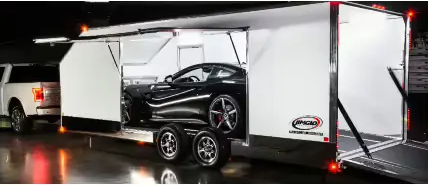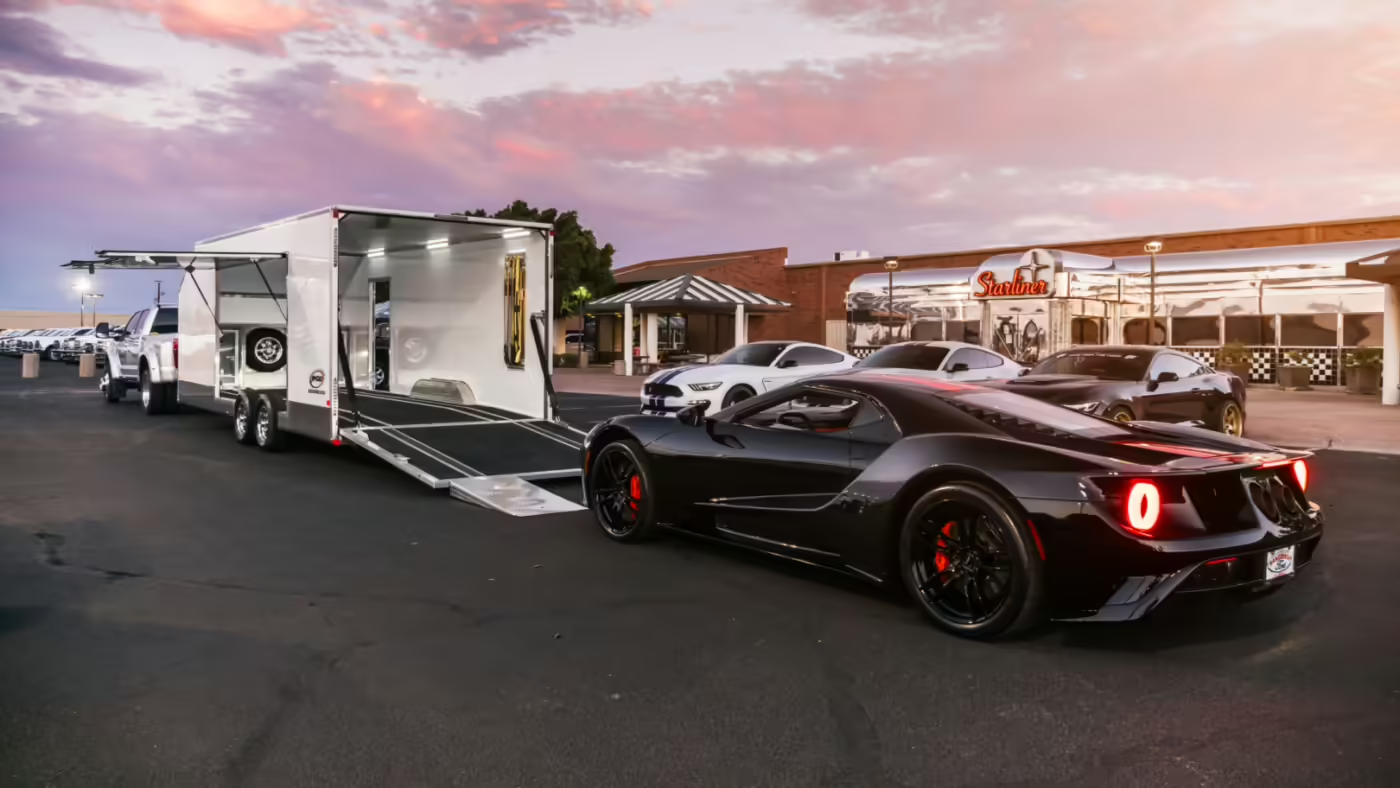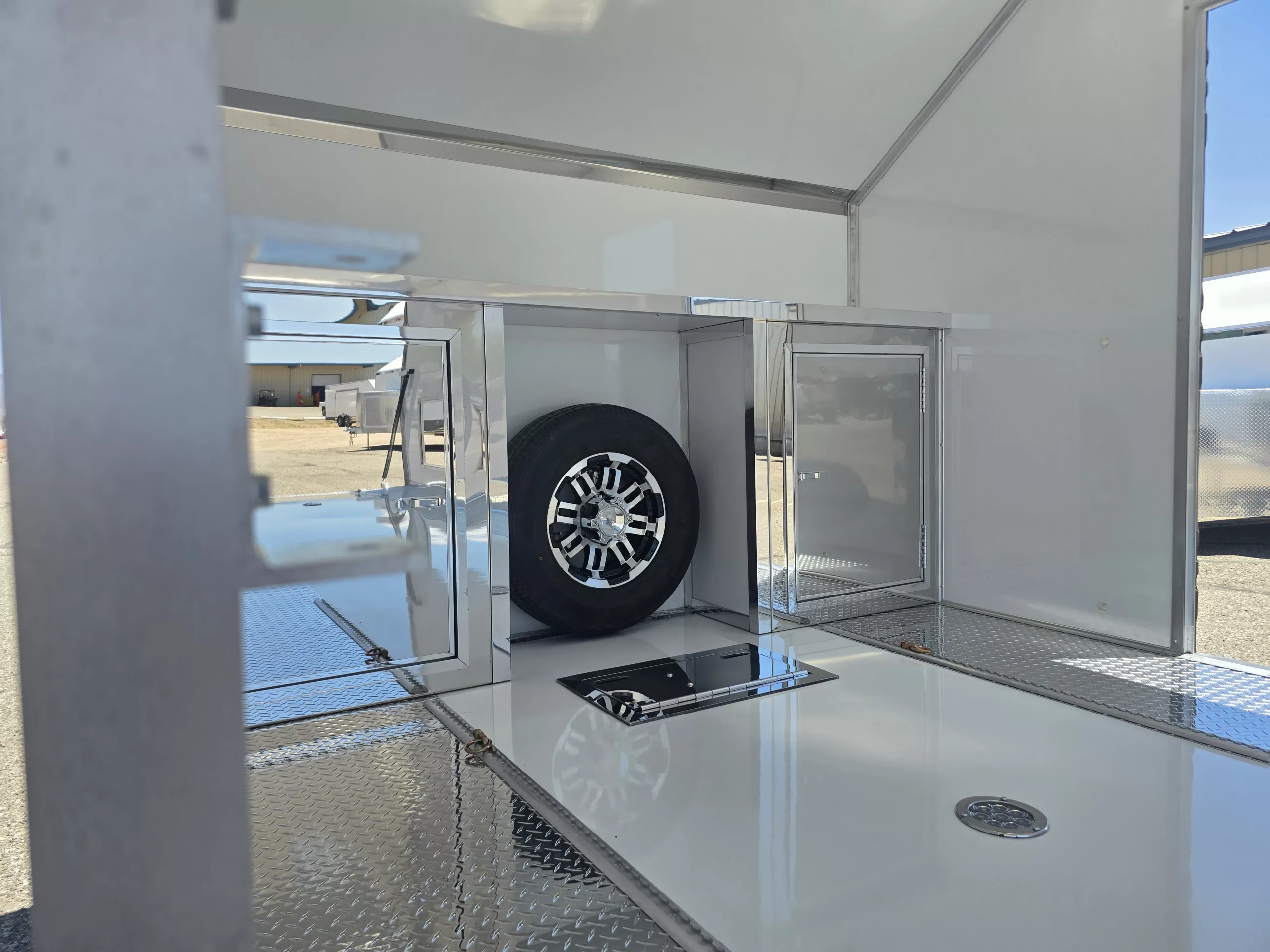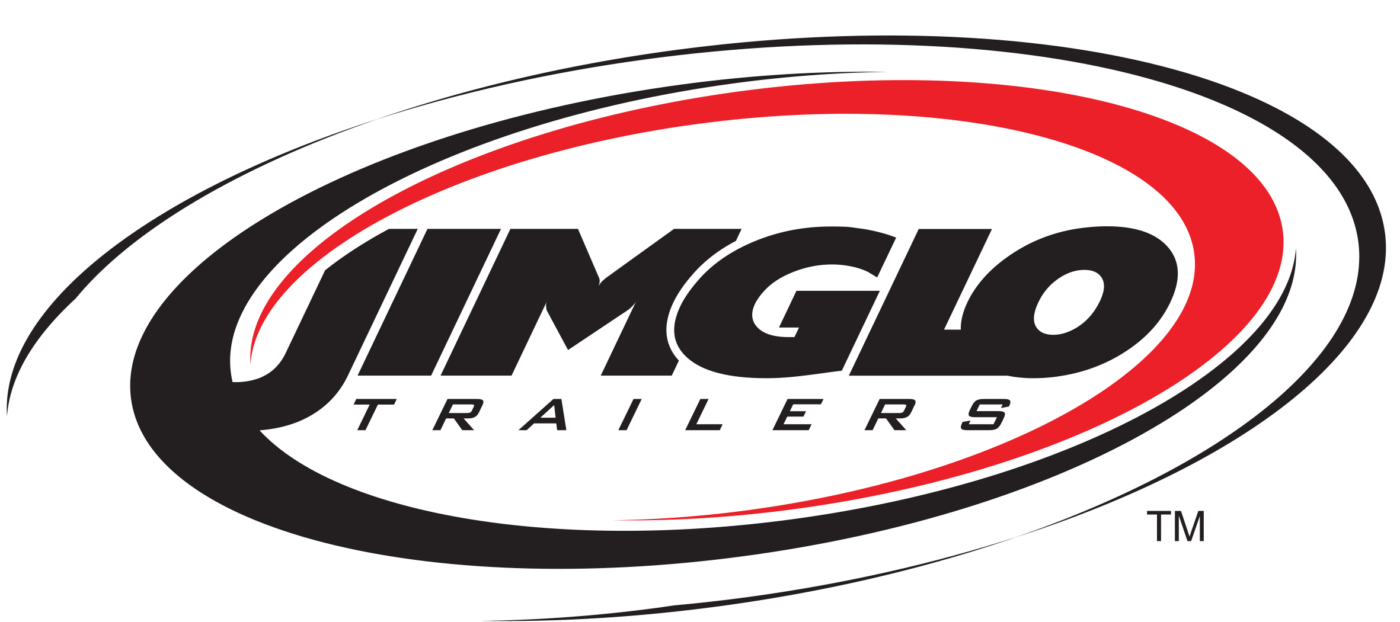Thinking of transporting your car? A car trailer is the perfect solution. But with so many options out there, choosing the right one can be a bit of a headache.
In this trailer buying guide, we’ll break down the key factors to consider when buying a car trailer. From size and weight to features and safety, we’ll help you find the perfect match for your needs.
So, let’s get started and find the trailer that’s right for you!
Car Hauler Trailer Buying Guide – 10 Things to Consider
To ensure you choose the right car trailer, we’ve compiled a list of 10 crucial factors. Here’s a detailed breakdown of each one to guide your decision:
1. Understand Your Needs and Budget
The first step in choosing the right trailer is understanding your specific needs. Are you hauling a classic car, a hot rod, or just a daily driver? Do you need basic functionality, or are you looking for a trailer with added features for a high-end vehicle? Trailers range from value options to exotic car trailers , so decide what fits your budget and requirements.
2. Type of Trailer
When buying a car trailer, one of the key decisions is choosing between an enclosed or open model. Enclosed trailers offer complete protection from weather and road debris, making them ideal for long-distance travel or extended storage.

This added protection is why many people choose enclosed trailers, especially when transporting their vehicles across multiple states.
On the other hand, open trailers provide a more budget-friendly option, often costing at least 50% less than their enclosed counterparts. Your choice will largely depend on how far and how often you plan to transport your vehicle, balancing cost with the level of protection you need.

3. Aluminum vs. Steel Trailer
When choosing between an aluminum or steel vehicle trailer, it primarily comes down to budget and the

trailer’s expected lifespan. Aluminum trailers are generally more expensive, but they offer excellent resistance to rust and typically last longer, making them a valuable investment in the long run. On the other hand, steel trailers are durable and can handle heavy use, but they may require maintenance to prevent rust and corrosion over time.
Besides cost, the weight of the materials also plays a crucial role. Aluminum is significantly lighter than steel, which can be a major advantage if you need to transport a car weighing several thousand pounds. For example, if you’re using a trailer with a maximum gross weight rating of 7,000 pounds, opting for an aluminum car trailer can help maximize your payload capacity while still providing the strength needed for safe transport.
4. What You’re Towing and With What Vehicle
Selecting the ideal car carrier trailer hinges on several key factors. The weight and size of the vehicle you intend to transport will significantly influence your choice. Heavier or larger vehicles require trailers with higher axle ratings and more powerful towing capacities.
The trailer’s weight itself is another crucial consideration. It directly impacts the size and towing capacity of the tow vehicle you’ll need. For example, a lightweight race car will demand a smaller trailer compared to a heavier vintage vehicle.
Understanding your tow vehicle’s towing capacity is essential for ensuring safe and efficient towing. Additionally, the trailer’s tongue length and configuration can affect its turning radius and overall stability. You should carefully consider these factors, you can select a car hauler trailer that perfectly suits your needs.
Here’s an estimated towing capacity of popular cars. For the exact towing capacity of your vehicle, be sure to check with the manufacturer or look it up online.
| Vehicle | Towing Capacity |
| Landrover Defender | 3500 Kg |
| Landrover Discovery | 3500 Kg |
| Nissan Patrol | 3500 Kg |
| Toyota Landcruiser GX | 3500 Kg |
| Mitsubishi Pajero | 3000 Kg |
| Nissan Navara | 2950 Kg |
| Nissan Patrol P/U | 2500 Kg |
| RangeRover | 2500 Kg |
| Toyota Fortuna | 2020 Kg |
| Ford Ranger 3.0 | 1800 Kg |
| Toyota Hilux 2.5 | 1650 Kg |
| Toyota Hilux 3.0 | 1590 Kg |
| Toyota Landcruiser 70 P/U | 1500 Kg |
| Mitsubishi Pajero | 1500 Kg |
| Toyota Hilux 2.7 | 1500 Kg |
| Nissan NP300 | 1400 Kg |
| Ford Ranger 2.5 | 1000 Kg |
5. Assess the Frame and Structural Features
A trailer’s frame is its backbone, so you need to choose wisely. You can go for a triple tube tongue frame which offers stability and a stronger frame support, especially when paired with an extended tongue for better maneuverability.
Center frame trailers often include a step inside for easy access, while perimeter frame trailers eliminate this step, offering a seamless interior floor.
6. Select the Type of Axle and Suspension Options
The type of axle and suspension system in your trailer is essential for how it handles on the road. You have a couple of options:
- Leaf Spring Axles: These are a traditional and cost-effective choice. They are reliable, easy to maintain, and come with greaseable hubs. Leaf spring axles work well for general use and are a solid option if you’re looking for affordability and dependability.
- Torsion Axles: For a smoother ride, especially on rough or unpaved roads, consider torsion axles. These are found on luxury car hauler and offer independent suspension for each wheel, providing a gentler ride. This type of axle is particularly suited for transporting delicate or high-value cargo, as it helps absorb shocks and reduce wear and tear on the vehicle.
Choosing the right axle and suspension system will impact the overall performance and comfort of your trailer, so consider your specific needs and driving conditions
7. Consider Door and Ramp Features
Doors and ramps are key components that affect usability and convenience. Look for doors with piano hinges and bushings for added strength and durability, reducing noise and wear. A slide-out step can make getting in and out much easier, particularly if there’s no interior step.
Ramp doors, on the other hand, should be strong enough to handle your vehicle’s weight, typically rated for up to 4,500 lbs or more. Features like transition flaps and beaver tail designs help ensure a smooth, easy entry, especially for low-profile vehicles.
8. Exterior and Interior Finishes
The finishes on both the exterior and interior of your trailer can greatly impact its look and functionality. Basic trailers usually have screwed metal exteriors, which are durable and practical but may not look as refined as the screwless designs found on premium models.
Luxury car trailer often include stainless steel elements that give them a polished, professional appearance, enhancing both aesthetics and longevity.

Look for interior packages that feature upgraded wall and ceiling materials, like vinyl, which provide a clean, professional look that’s easy to maintain. Flooring is also crucial—options like 3/4-inch plywood with additional floor supports offer extra durability, making your trailer more resilient for transporting valuable or heavy cargo.
9. Tire Type
The type of tires on your trailer plays a key role in how smoothly it rides. Its better if you go for radial tires. These are standard on most trailers and are known for providing a smoother, more comfortable ride. They handle heat better, have a longer tread life, and offer improved stability on the road compared to bias-ply tires.

10. Test the Brakes
For heavy trailers, having a reliable braking system is essential because a malfunction can render the trailer and its cargo immobile during sudden stops, posing a serious safety risk. It’s crucial to regularly inspect the braking components, ensuring their integrity and checking for wear and tear.
Pay special attention to the wheel bearing housings, looking for any signs of leaks or wear that could compromise the trailer’s performance. If the bearings have grease fittings, ensure they are properly lubricated to maintain smooth operation.
Whenever possible, test towing the trailer before purchasing or using it. This allows you to assess the brakes and wheel components under real conditions, ensuring everything functions correctly when the trailer is loaded.
A thorough inspection can prevent unexpected breakdowns and ensure safe, efficient operation on the road.
FAQ
1. How do I know what trailer to buy?
Consider your purpose, cargo size and weight, your vehicle’s towing capacity, and your budget.
2. How do I choose the right trailer?
Research trailer options, match the trailer to your needs, make sure your vehicle can tow it, inspect for defects, and seek expert advice if needed.
3. How do you measure trailer size?
Measure the trailer’s width from side to side and its length from the front to the back bumper, including any projections like handles or hitches. Note down the height, width, and length.
4. What is the most popular type of trailer?
Utility, enclosed, cargo, boat, and RV trailers are popular, depending on their use and trends.
5. How do you calculate trailer capacity?
Trailer capacity is determined by the towing vehicle’s maximum weight limit, known as towing capacity, which includes the Gross Vehicle Weight Rating (GVWR). If your towing vehicle has a Gross Vehicle Weight Rating (GVWR) of 7,000 pounds and the vehicle itself weighs 4,500 pounds (including passengers, fuel, and cargo), your towing capacity would be approximately 2,500 pounds.
6. How do I know what trailer to buy?
The trailer you need depends on what you plan to haul. For example, equipment, ATVs, or furniture may require different types of trailers. Consider factors like size, weight capacity, and compatibility with your towing vehicle.
7. How do I choose the right trailer?
Choosing the right trailer involves understanding your towing vehicle’s capacity, the type of cargo, and the trailer’s dimensions. For small to midsize trucks, an 8.5×16′ trailer might suffice, while larger trucks may need a trailer up to 8.5×20′ for heavier loads.
8. What do you look for in a trailer?
Key features to look for include the trailer’s size, weight capacity, and build quality. Additional considerations might include ease of loading/unloading, safety features, and any accessories like ramps or sidewalls.
Bottom Line
Selecting the ideal car hauler trailer is crucial for a successful towing experience. Factors such as trailer size, weight capacity, hitch type, and features play a significant role in ensuring a safe and enjoyable journey.
Prioritize safety and proper maintenance. Ensure your trailer is thoroughly inspected before each use.
Ready to invest in a quality lightweight aluminum trailer? Explore JIMGLO Trailers’ wide range of options, designed to meet your specific towing needs.
